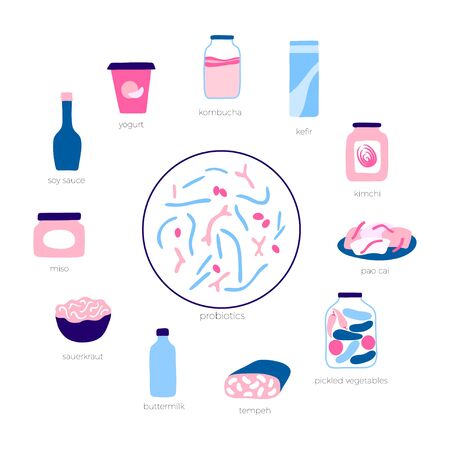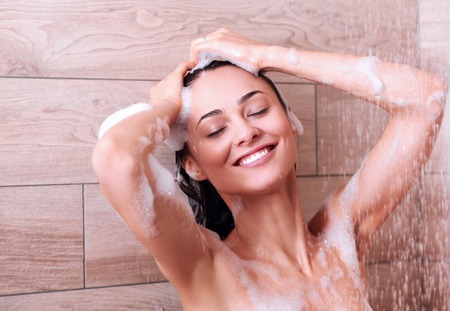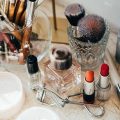1. The Growing Demand for Ethical Beauty in the U.S.
In recent years, American consumers have become more conscious about what goes into their beauty products—and how those products are made. This shift has sparked a growing demand for vegan and cruelty-free options, especially within the K-beauty (Korean beauty) market. As awareness of animal welfare, sustainability, and ingredient transparency continues to rise, people are rethinking their buying habits and choosing brands that align with their values.
Why Consumers Are Making the Switch
Several key factors are driving this trend:
- Animal Welfare: Many people are rejecting products tested on animals or containing animal-derived ingredients.
- Sustainability: Eco-conscious consumers are looking for brands that minimize environmental impact.
- Ingredient Transparency: Shoppers want to know exactly what’s in their skincare and makeup—and prefer clean, plant-based formulas.
The Influence of Social Media and Education
Social media platforms like Instagram, YouTube, and TikTok have played a big role in spreading awareness. Influencers and beauty experts share product reviews and educational content that highlight ethical beauty brands. As a result, more consumers are learning about vegan and cruelty-free options from trusted voices online.
What “Vegan” and “Cruelty-Free” Really Mean
| Label | Description |
|---|---|
| Vegan | No animal-derived ingredients used (e.g., no honey, beeswax, collagen) |
| Cruelty-Free | The product and its ingredients were not tested on animals at any stage |
K-Beauty Brands Adapting to U.S. Trends
Korean beauty brands have started to embrace this movement by creating lines specifically tailored to American preferences. Many now offer certified vegan and cruelty-free products, with clear labeling to help shoppers make informed decisions. This not only meets consumer demand but also opens new opportunities in the U.S. market.
The rise of ethical beauty is not just a passing trend—it’s a reflection of deeper values that are changing the way people shop for skincare and cosmetics. As more Americans seek out kind-to-animals and eco-friendly options, K-beauty is evolving to meet them where they are.
2. K-Beauty’s Evolution: From K-Pop Influence to Conscious Formulas
Over the past decade, Korean beauty—also known as K-Beauty—has taken the U.S. by storm. With its innovative skincare routines, eye-catching packaging, and influence from K-pop culture, it quickly became a favorite among American beauty lovers. But today, K-Beauty is going through a meaningful transformation. More brands are embracing ethical values by introducing vegan and cruelty-free product lines without sacrificing the style and performance that made them famous in the first place.
Shifting Consumer Expectations
As American consumers become more conscious about what goes into their skincare products—and how those products are made—they’re demanding more transparency and responsibility from beauty brands. This shift has pushed Korean beauty companies to rethink their formulas and manufacturing processes.
Key Areas of Change
K-Beauty brands are evolving in several major ways to meet ethical standards:
| Traditional K-Beauty Approach | Modern Ethical Upgrade |
|---|---|
| Animal-based ingredients (e.g., snail mucin, bee venom) | Plant-based alternatives (e.g., fermented soy, green tea) |
| Animal testing (especially for overseas markets) | Cruelty-free certifications (e.g., Leaping Bunny, PETA Approved) |
| Plastic-heavy packaging | Eco-friendly materials like glass, recycled plastic, or biodegradable options |
The Balance Between Ethics and Aesthetics
One of K-Beauty’s trademarks is its fun, colorful, and sometimes whimsical packaging. Brands understand that switching to sustainable practices shouldn’t mean losing the charm that makes their products Instagram-worthy. Companies like Dear, Klairs, Purito, and Sioris are leading the way by offering minimalist yet visually appealing packaging that aligns with eco-conscious values.
Maintaining Innovation with Clean Formulas
K-Beauty is also known for being ahead of the curve when it comes to skincare innovation—think essences, ampoules, and sheet masks. The good news? These innovations aren’t going anywhere. Instead, they’re getting a clean upgrade. Many Korean brands are now using naturally derived ingredients free from parabens, sulfates, and synthetic fragrances while still delivering high performance.
A Few Popular Vegan & Cruelty-Free K-Beauty Brands in the U.S.
- Purito: Known for minimal ingredients and eco-friendly packaging.
- Krave Beauty: Founded by influencer Liah Yoo; focuses on skin barrier health with clean formulations.
- Benton: Offers certified cruelty-free products with vegan options.
- Sioris: Uses seasonal organic ingredients sourced from Korea.
The rise of vegan and cruelty-free offerings within K-Beauty shows that these brands are listening to global demand—especially from U.S. consumers—for smarter, kinder skincare. As this evolution continues, it proves that ethics and innovation can go hand in hand without compromising on aesthetics or effectiveness.

3. Vegan and Cruelty-Free Certifications: What American Shoppers Look For
As vegan and cruelty-free K-beauty gains popularity in the U.S., American consumers are becoming more educated and selective about the products they buy. One of the key factors influencing their decisions is certification. Shoppers want proof that a product truly aligns with ethical values, not just marketing buzzwords. That’s where third-party certifications come in.
Why Certifications Matter
In the U.S., terms like “vegan” and “cruelty-free” aren’t strictly regulated by government agencies. This means brands can sometimes use these labels without meeting strict standards. To earn consumer trust, K-beauty brands are turning to well-known certification organizations that offer transparency and credibility.
Top Vegan and Cruelty-Free Certifications in the U.S.
Here’s a breakdown of the most recognized certifications that American shoppers look for when choosing vegan and cruelty-free beauty products:
| Certification | Organization | What It Means | K-Beauty Brands Example* |
|---|---|---|---|
| Leaping Bunny | CCIC (Coalition for Consumer Information on Cosmetics) | No animal testing at any stage of product development, including suppliers. | Purito, Benton |
| PETA’s Beauty Without Bunnies | PETA (People for the Ethical Treatment of Animals) | No animal testing; may include both cruelty-free and vegan options. | Klavuu, Dear, Klairs |
| Certified Vegan | The Vegan Awareness Foundation (Vegan Action) | No animal ingredients or by-products; no animal testing. | Aromatica, Whamisa |
*Brand examples are based on publicly available certification listings as of 2024.
K-Beauty Brands Aligning With U.S. Standards
Korean beauty brands are recognizing the value of aligning with trusted U.S. certifications to appeal to ethically conscious shoppers. Getting certified not only boosts brand image but also provides a layer of accountability that resonates with American consumers. Many newer K-beauty lines are launching with certifications already in place, while established brands are reformulating or expanding their product lines to meet these standards.
The Trust Factor
The presence of a recognizable logo—like the Leaping Bunny or Certified Vegan seal—on packaging plays a big role in purchasing decisions. For many shoppers, its a shortcut to knowing that a product aligns with their personal values. In fact, according to consumer surveys, products with third-party ethical certifications tend to be perceived as higher quality and more trustworthy.
A Win-Win Strategy
K-beauty brands that invest in proper certification arent just doing good—theyre also tapping into a growing market segment. By meeting American expectations around transparency and ethics, these brands position themselves for long-term success in an increasingly competitive beauty landscape.
This shift toward verified vegan and cruelty-free practices shows how Korean beauty is evolving to fit global values while maintaining its innovative edge.
4. Top Vegan and Cruelty-Free K-Beauty Brands Making Waves in the U.S.
As more American consumers shift toward conscious beauty choices, Korean beauty brands are stepping up with innovative vegan and cruelty-free products that align with these values. Several K-beauty labels have not only adapted to meet ethical standards but have also gained popularity for their clean ingredients, sleek packaging, and effective formulas. Heres a closer look at some of the standout brands making a splash in the U.S. market.
Popular Vegan and Cruelty-Free K-Beauty Brands in the U.S.
| Brand | Known For | Why U.S. Consumers Love It |
|---|---|---|
| Dear, Klairs | Gentle skincare products for sensitive skin | Minimalist formulas, fragrance-free options, and a strong ethical stance |
| Glow Recipe | Fruity skincare with fun textures | Instagram-worthy packaging, clean ingredients, and effective hydration |
| Purito | Transparent ingredient lists and eco-conscious packaging | Vegan formulations, sustainable branding, and budget-friendly prices |
| Sioris | Seasonal ingredients sourced in Korea | Fresh formulations, simple routines, and eco-friendly messaging |
| The Vegan Glow | Certified vegan and EWG-safe products | No-fuss skincare with high safety standards and affordability |
How These Brands Appeal to American Beauty Shoppers
Korean vegan and cruelty-free beauty brands are winning over U.S. consumers by blending innovation with ethics. They often highlight:
- Sustainability: Eco-friendly packaging and responsible sourcing resonate strongly with eco-conscious shoppers.
- Transparency: Clear labeling of ingredients and certifications builds trust.
- Aesthetic Appeal: Eye-catching design makes these products popular on social media platforms like Instagram and TikTok.
- Effective Formulas: Despite being gentle and plant-based, many K-beauty products deliver noticeable results quickly.
- Diversity of Options: Whether it’s serums, sunscreens, or cleansers, there’s something for every skin type and concern.
K-Beautys Unique Edge in the U.S. Market
The fusion of traditional Korean skincare philosophies—like layering, hydration-first routines, and natural remedies—with modern vegan ethics gives these brands a unique edge. They’re not just offering an alternative—they’re setting new standards in what it means to be clean, ethical, and effective in beauty.
Pro Tip for Shoppers:
If youre looking to explore vegan K-beauty options in the U.S., check for official cruelty-free certifications like Leaping Bunny or PETA-approved logos. Also, keep an eye on ingredient transparency to ensure youre getting truly clean beauty.
Korean brands continue to evolve to meet the expectations of a global audience—and in the U.S., theyre doing it beautifully while staying kind to animals and the planet.
5. Retail Shift and Social Media Influence
As the demand for vegan and cruelty-free K-Beauty products grows in the U.S., major retailers and social media platforms are playing a key role in shaping this ethical beauty trend. American consumers are becoming more conscious about what goes into their skincare and makeup products, and where those products come from. Retailers and influencers are responding by spotlighting brands that align with these values.
Retailers Leading the Change
Big-name stores like Ulta Beauty, Sephora, and Target have started dedicating more shelf space to Korean beauty brands that are vegan and cruelty-free. These retailers often feature special labels or curated sections to help shoppers easily identify ethical options. Their online platforms also include filters that allow customers to search specifically for vegan or cruelty-free products.
Examples of Retail Support
| Retailer | Initiatives |
|---|---|
| Sephora | “Clean at Sephora” label includes K-Beauty brands with cruelty-free certifications |
| Ulta Beauty | Vegan & Cruelty-Free filters on website; featuring new K-Beauty lines in stores |
| Target | Dedicated page for ethical beauty, including Korean skincare selections |
The Power of Social Media
Social media platforms like Instagram, TikTok, and YouTube have become essential spaces where beauty trends are born and spread. Influencers who focus on clean beauty frequently share reviews, tutorials, and honest feedback about vegan K-Beauty products. This kind of community-driven content allows followers to make informed choices while discovering new brands.
Influencer Marketing Drives Awareness
K-Beauty influencers often highlight their favorite cruelty-free finds through short-form videos and “Get Ready With Me” routines. These posts not only educate but also normalize choosing ethical alternatives. Hashtags like #veganKbeauty or #crueltyfreekbeauty help users find product recommendations quickly, building a sense of trust and community among like-minded consumers.
Why It Matters
The combined influence of retail visibility and social media storytelling is helping ethical K-Beauty go mainstream in the U.S. Consumers now expect transparency from brands, and both retailers and influencers are stepping up to deliver it—making it easier than ever for people to shop with their values in mind.


